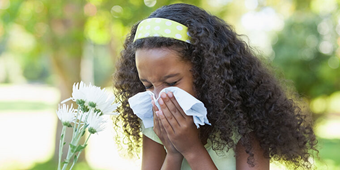6 Tips To Fight ‘COVID 15’ Weight Gain

Answer a few questions and we'll provide you with a list of primary care providers that best fit your needs.
Has the notorious “Freshman 15” college weight gain given way to the “COVID 15” during the pandemic? Researchers have recently documented weight gain as a reality of life during COVID-19.
Dietitian Diana Weathers, RDN, CSOWM, LD, Premier Weight Loss Solutions, spoke with Premier Health Now about the reasons why we’re adding pounds — and tips on what we can all do to counteract the trend.
“We’ve seen many clients who have gained weight as a direct result of the pandemic,” Weathers says. “Spending more time in their homes has led to more grazing and snacking and decreased exercise, especially over the winter months.”
She also notes that persistent stress can increase levels of the hormone cortisol in the body, which in turn increases appetite. Sweet and salty foods are especially appealing, as they trigger a release of a brain chemical called dopamine that can make us feel better temporarily.
As people have stayed home, fitted clothing has often given way to elastic waistbands, and the pounds have crept on almost stealthily. Closed workout facilities and cold weather have compounded the problem. Add the easy accessibility of the pantry and fridge as people work from home, and the changes often add up to extra pounds.
Weathers notes why we should take the additional weight seriously, without being too hard on ourselves: “A 10-pound weight gain could have a large impact on a person’s health, especially if they have underlying conditions such as diabetes, high blood pressure, or high cholesterol.”
Tips For Turning Weight Gain Into Weight Loss
To turn the tide on weight gain, Weathers encourages people to set up their environment for success, especially when working at home.
Her tips for reversing the trend from weight gain to weight loss include:
- Rid your home of trigger foods that will tempt you to graze or overeat.
- Keep a food journal to help you be mindful of and accountable for what you eat.
- Eat more fruits, vegetables, whole grains, and lean protein, and limit processed foods, high-sugar foods, and fast foods. “Try doing more meal preparation at home,” she counsels.
- Set up an eating schedule. Eat four to five smaller meals per day versus two to three larger meals. “This will help rev your metabolism and keep you sustained throughout the day,” she explains. “It also helps decrease overeating or bingeing later in the day.”
- Choose nutritious snacks, such as pairing a protein with produce. For example, snack on a cup of berries and light mozzarella string cheese or a quarter cup of tuna salad and celery sticks.
- Increase exercise, even if it’s walking 30 minutes a day.
Weathers says it comes down to controlling what you can: “There are so many factors in life that are out of our control, but food is something we can gain control of. We can choose and decide how we want to nourish our bodies. We have the power to change; we just must make the choice to do so.”
Answer a few questions and we'll provide you with a list of primary care providers that best fit your needs.
Source: Diana Weathers, RDN, CSOWM, LD, dietitian, Premier Weight Loss Solutions; CNN





